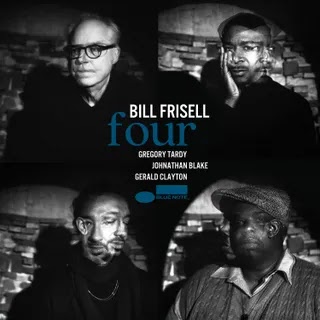These live sets between the saxophonist and pianist capture a dialogue between two highly skilled and empathetic collaborators, whose reverence for space matches their regard for the music itself.
Archie Shepp doesn’t play the saxophone so much as he sings through it. His phrasing is expressive and free, on par with the great jazz and blues vocalists, and six decades of making music has not dulled his abilities. Each note on Let My People Go, his new record with pianist Jason Moran, is fresh, like the start of some fascinating conversation you’re lucky enough to overhear. At 83, Shepp has found a worthy partner in this particular exchange. Moran is 37 years Shepp’s junior, but has worked with greats like Wayne Shorter, Cassandra Wilson, and Charles Lloyd. His presence on Let My People Go is elegant and highly sensitive to Shepp’s spirited wanderings. Recorded live in 2017 and 2018, Let My People Go captures a dialogue between two highly skilled and empathetic collaborators, whose reverence for space matches their regard for the music itself.
Let My People Go collects Shepp and Moran’s performances from two sets: a gig at Paris’ annual Jazz à la Villette festival in 2017 and live recordings from 2018’s Enjoy Jazz Festival in Mannheim, Germany. For their first time recording together, having met just a few years prior, it’s remarkable how at ease both men sound in each other’s presence. Shepp has said that he tries not to use written music during his performances in an attempt to “make it as much like old New Orleans as possible: that is, completely improvised and nonacademic.” Let My People Go epitomizes that spirit; it deals in pure feeling.
Shepp is lyrical and emotive with his instrument. He is capable of communicating great pain, but does not clog every measure with shrieks. Moran is equally tasteful and expressive, but if Shepp is a painter, Moran is more like an expert boxer, shuffling in only when there is space to do so, dancing away gracefully when there is not. Standards like “Round Midnight,” “Sometimes I Feel Like a Motherless Child,” and “Isfahan” are all prime examples of this gorgeous exchange, and each one takes on new life in Shepp and Moran’s hands. Shepp and Moran explore the darker corners of “Isfahan,” a Duke Ellington tune from his band’s 1967 album Far East Suite. Shepp’s measures are full of longing, and they occasionally seep out in queasy blurts; Moran tiptoes in between them, striking clusters of notes that sparkle and growl. The effect is intimate and forlorn, as if Ellington’s orchestra turned in for the night and Shepp and Moran stayed onstage to concoct their own after-hours sonata.
The chemistry between Shepp and Moran is so heady, it could easily be disturbed by singing. But when Shepp’s voice comes in the final third of “Sometimes I Feel Like a Motherless Child,” it’s more of a comfort than a surprise. His range has settled into a velvety timbre that creates the deepest tone on the album. His repetition of the title phrase is pained, as if crushed under the weight of the song’s history as a traditional spiritual. On “Go Down Moses” Shepp sings the album’s titular line with a similar gravity: “Let my people go.” It is a sobering demand, following some of Moran’s most stunning, dynamic piano work.
Shepp has always felt that the music made by Black artists functions as a political act in and of itself. But throughout the decades, he has always gone further than just making music. Shepp was actively involved with the Civil Rights movement, wrote politically charged theater pieces, and recorded an album in response to the tragic outcome of the Attica prison uprising. Today, Shepp is still pushing forward, inviting the new guard to recontextualize jazz standards, and actively collaborating with them. Let My People Go is at its core a conversation between a jazz elder and a modern virtuoso, one that draws on a rich history of ideas, but offers space to further the discussion.
















0 comments:
Post a Comment